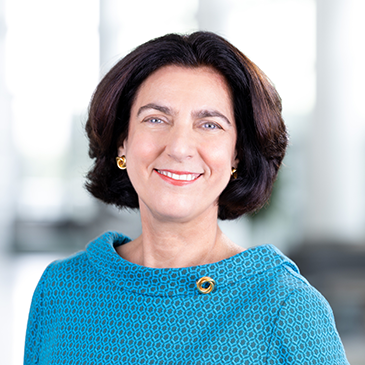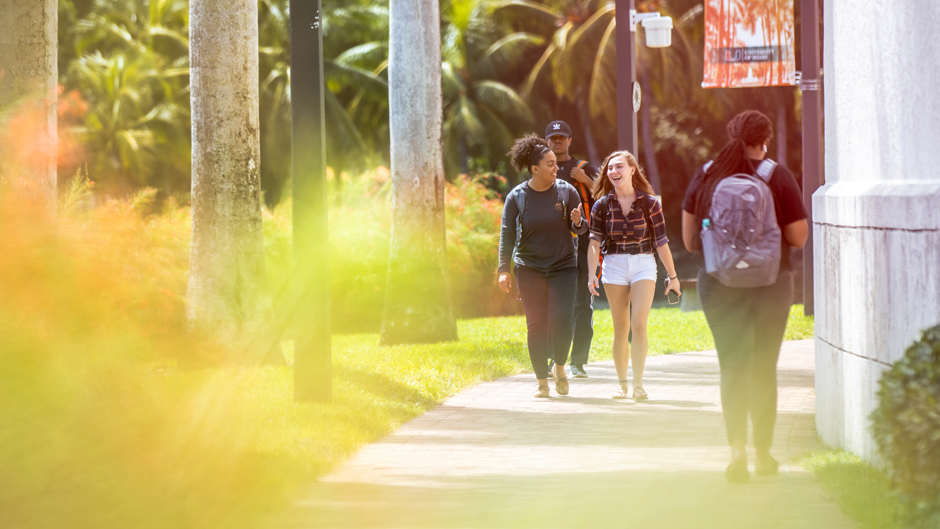A year ago, junior Richelle Still was unclear about where her major in international studies might lead. The notion of a career path was foggy and elusive. She was sure, though, that she wanted to be in service, to help the world in some way.
In her first year, she had taken a class on post-colonialism and its role in ethnic conflicts in Africa. “That class opened me to all sorts of new ideas,” Still said. “I just started taking classes of interest to me, and from there I’ve been able to make connections. It’s been really cool in my major that we’re required to do research papers.”
Writing one paper in particular sparked her interest in how language forms our identities and the consequences of that. She started taking Arabic classes that have helped her appreciate different perspectives and dialects.
This semester, she signed up for a class on “Global Issues and Filmmaking,” in part because she said she knew very little about film. The pieces of her career path puzzle continue to take shape. Next fall, she plans on doing a study abroad program in Turkey or Spain. And Still now envisions a career with an international organization or in the foreign service.
“It’s been fascinating,” she said. “I just need to see it for myself. And by taking classes on the many regions of the world, I’m getting to learn from everyone.”
For Maria Galli Stampino, dean of Undergraduate Affairs at the University of Miami, Still’s approach and experience makes an important statement about the wealth of the college experience.

“Students only know what they know when they come to the University, which is language arts, certainly math, a history class or two, some science. They might have taken an elective in psychology,” she said. “So, when they come here and find they can study anthropology, exercise physiology, making movies, real estate, and so much more, the sky is really the limit.”
Just as in Still’s example, the pathway for students to find their calling—a vocation that is unique to them and to their particular talents and passions—is far from linear.
“As we’ve gotten more selective with the student population that we admit and move here on campus, they tend to have focused on what they think is their future in a linear fashion,” Stampino said. “But as we know, life is not necessarily linear, especially for these students, who will see in their lifetimes even more changes because of the acceleration with technology.”
It’s difficult to talk to an 18-year-old about non-linearity, though, she noted.
“Because, they’re like, ‘I’m here and then I’m going to go to medical school and then I’m going to be a doctor.’ Great, what kind of a doctor do you want to be? Or what specialty do you want to follow? Do you want to be in contact with people or more on the research side, developing new treatments or looking at the molecular composition of cancer? And they look at me like I’ve got five heads,” explained Stampino.
When counseling and meeting with students, the dean likes to ask “inconvenient questions” about what personal, intellectual, and professional goals they have for themselves or want to develop.
“In some cases, the three are not at all aligned,” she pointed out. “You have the pre-med student who says they want to major in art because they want to be creative in their undergrad years and also it might be good to think three dimensionally because they’re good at drawing. They may like a skill that is directly related to the intellectual goal of getting a certain major but may be distantly related to the professional one. But also, we have students who don’t really know what they want yet.”
Then, the conversation is very different, Stampino said. Students are referred to the Toppel Career Centerthat provides a wide range of options to help them identify their strengths and provides other support in terms of career direction.
For Stampino, one of the best things a residential campus like the University of Miami offers is the opportunity to learn about yourself.
“But first of all, you need to pay attention to yourself; you need to self-reflect,” she said. “And you can do this in a million different interactions, some of which are going to happen in a classroom, but many which will happen outside, at a basketball game, at Greek life events, or volunteering in the community.
“This is crucial—and exactly where some students have trouble—because they think based on their high school experience that they just have to do their 120 or 150 credits and that these will result in this knowledge,” Stampino added. “But knowledge doesn’t happen unless you self-reflect, unless you have this sort of metacognitive moment. And it’s not about what other people tell you.”
The administrator suggested that students need to step back from their studies, from their interactions, even at times from what their resident assistant might be proposing in terms of an activity or a volunteer opportunity. And they need to ask themselves: “Does this make sense to me? Is it something I want to explore, something I’m comfortable with, and that I want to do more of?”
It’s most important that students begin to take ownership of their education and their future, she noted. She marked a contrast between deciding on a career path versus finding your calling or vocation.
“A vocation is something that you feel very strongly about but then connects with your innate skills,” Stampino said. “I’m not good at math, so I work with and surround myself with people who are good with data in order to carry out both my vocation and my career as they happen.”
Ultimately, she said that she believes the university serves as one of the best incubators for students to help them gravitate toward their career and calling.
“This is part of the value proposition that maybe we need to make clear for students,” Stampino said. “An institution of our size that’s residential multiplies the opportunities to have interactions with peers and adults who come from a variety of backgrounds, from different places, and that have different belief systems. And everyone contributes something different.”
Stampino especially enjoys counseling students like Still, who are unsure about their direction when they come to college, because she knows that the college experience offers the ideal environment to orient them toward their calling.
“I’d actually prefer if more students came without a definite idea. Then we would engage, as a matter of course, in this sort of discovery process as opposed to ‘Oh, I thought I was going to be doing this and now I feel like I’m a little bit of a disappointment to myself or to my family because I’ve changed my mind,’ ’’ she said.
“It’s okay,” Stampino likes to tell students. “You know, the University is an incubator, and you’re going through a really transformative period in your life. You’re on your own. You’re a late teen, you’re discovering the world and your place in it. It’s okay not to know and to try to stabilize and get input. It’s no different from any other day in our lives when things pan out in a certain way and we control a little bit of it.”

